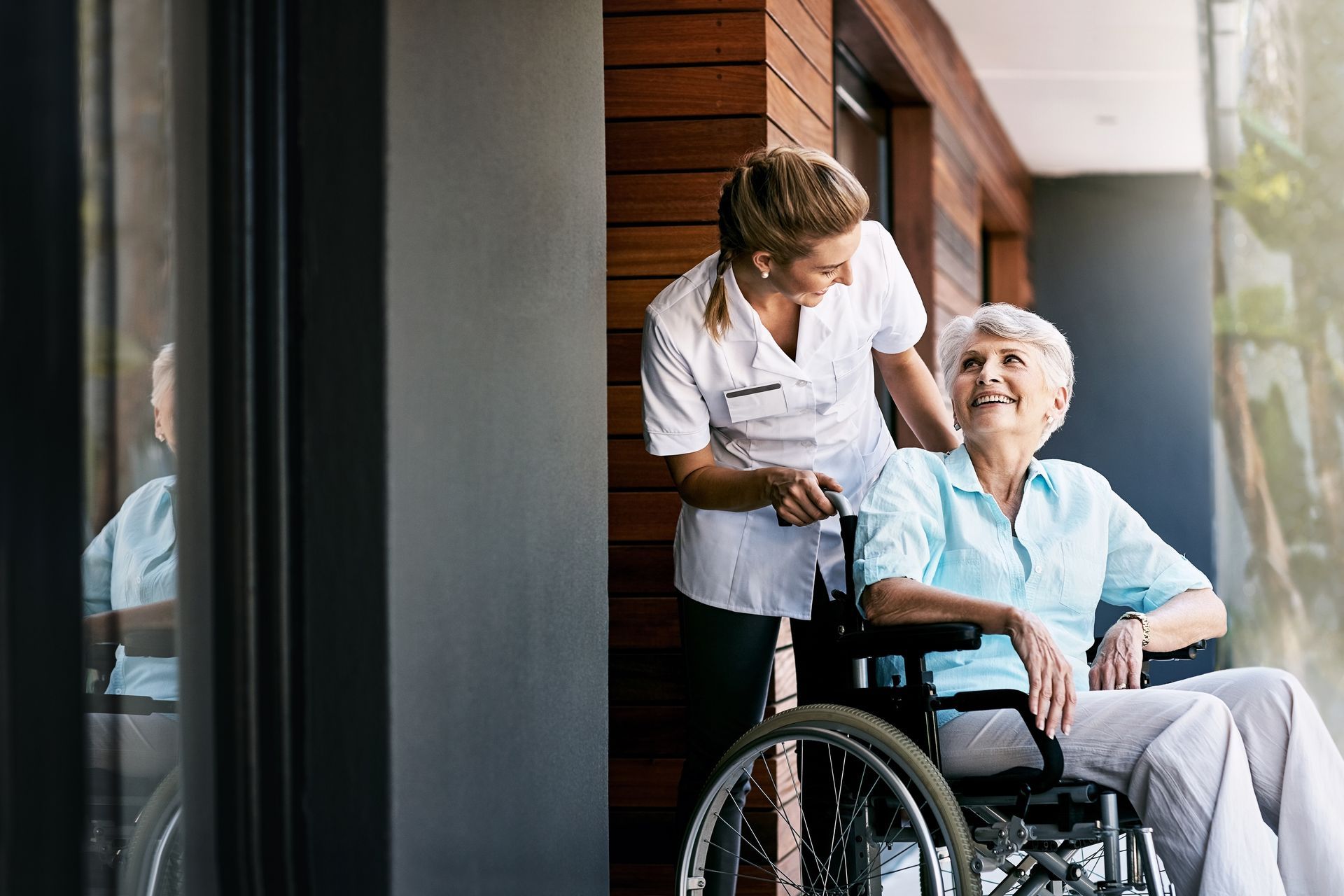BLOG
How to Keep Family Relationships Strong with Alzheimer’s
If you’re wondering how you can better serve your parent or relative who’s living with Alzheimer’s disease, you can feel relieved that some of it’s in your hands. Simply showing your face, having a conversation and participating in activities together can do wonders for dementia and Alzheimer’s sufferers.
One of the signs of developing Alzheimer’s is pulling back from social interaction. This could be due to the embarrassment of forgetting conversations as they happen, ceasing to attend to personal hygiene, and some of the other symptoms that come with cognitive decline. Keeping the brain sharp and engaged through social activity is beneficial for all ages, but for the elderly facing dementia, it’s essential.
At Assured Assisted Living we strive to provide as much Alzheimer’s information for families as possible. We are committed to not only providing the best quality assistance and service to those in our care but also to being an Alzeimer’s resource to support families and caretakers. Our goal is to provide all the Alzheimer’s information and support that your family needs help you improve the quality of life of your loved one.
How Many Families Are Affected By Alzheimer’s?
Worldwide, there are about 47 million people living with Alzheimer’s disease. Of those, 5.8 million, or roughly 12 percent, live in the United States. Experts predict that the number of Alzheimer’s cases is set to double every 20 years, reaching around 75 million in 2030 and 131 million in 2050.
The silver lining of these numbers is that because the disease is relatively common, there’s a lot of Alzheimer’s information for families that you can access to help your loved one.
Alzheimer’s is an irreversible brain disorder that results in severe cognitive decline including memory loss and thinking skills. It’s the most common cause of dementia. It can only be treated, not cured, and is the sixth leading cause of death in the United States.
How Can an Alzheimer’s Diagnosis Affect a Family?
Alzheimer’s is more than just a disease, it is a change of lifestyle. It can bring about stress for a family as they figure out how to best care for their relative amid the tragedy of watching someone they love and admire deteriorate mentally. At times like this, it’s crucial to remember what’s important and work through differences so the loved one gets the care they deserve.
Yes, an Alzheimer’s disease diagnosis—like any illness—can stir up feelings of anger, resentment, anxiety, sadness, frustration and fear. Big decisions regarding care, finances and living arrangements now stare the family directly in the face, all while they are forced to accept that things will never be the same. With Alzheimer’s, support for family is of the utmost importance.
Support Tips: How to Tackle Alzheimer’s as a Family
There are ways to make sure everyone gets to be involved and do their part. Responsibilities can be laid out in a list and family members can take turns performing each task according to strengths, emotional capacity and resources. Some decisions, such as whether the loved one should return to live with a family member or live in an assisted living facility, can be made as a group.
Decisions like this and others should be made at regular family meetings where questions, concerns and comments can be addressed with each family member being afforded the opportunity to bring up new ideas for the best care. These meetings should come with an agenda of issues regarding care and needs, problems and solutions to be discussed.
Everyone should be willing to compromise and the meetings should be adjourned with every one of the primary caregivers (i.e. the children of the parent with Alzheimer’s) having a clear understanding of what course of action was agreed upon. Also, it’s very important to include the loved one with Alzheimer’s whenever possible. That way they can feel included in what will happen to them.
It is also essential, during meetings or otherwise, to communicate honestly with family about how you’re feeling and not to criticize others when they do so. Expressing feelings should be carefully considered as to not place blame on others. Keep in mind that everyone is on the same side and only wants the best for whoever has Alzheimer’s.
You can also educate yourself about the disease to get a better sense of what your loved one is going through. There is a lot of Alzheimer’s information for families out there. Spend time as a family outside of the meetings where you discuss care and needs, as it’s important to show one another that you still enjoy each other’s company. Finally, be patient; things will get easier as you and your family adapt to the new reality.
Does Alzheimer’s Run In the Family?
Data shows that around eight percent of people over sixty-five will develop dementia and in over sixty percent of those cases, it will manifest itself as Alzheimer’s. After sixty-five the odds of getting the disease doubles for every five years of life. So age is actually the biggest determiner regarding Alzheimer’s.
That being said, there are some factors linked to genetic causes. To understand how Alzheimer’s can be hereditary, it’s vital to know that two types of the disease exist. First is what’s called ‘Sporadic Alzheimer’s’ which accounts for about 98 percent of cases and leaves first degree relatives (i.e. children) two or three times more likely to develop the disease versus people whose parents don’t suffer from it. Second is what’s known as ‘Familial Alzheimer’s disease’ that carries a 50 percent chance of being passed on to a first-degree relative. Unlike Sporadic Alzheimer’s that develops in the 60s or 70s for most people, familial Alzheimer’s can begin in a person’s 40s or 50s.
Genetic testing is available to decipher which type of Alzheimer’s the patient and their family are dealing with. So yes, genetics do play a role, but not always the largest role. Alzheimer’s in the family doesn’t have to be the end of the world. It can be a chance to reconnect and do what’s right for a parent, grandparent or beloved relative. If things become too overwhelming or if your family decides that outside assistance is needed, Assured Assisted Living delivers top-to-bottom Alzheimer’s support for families.
For more information about Assured Assisted Living, please schedule a tour or call (303) 814-2688 today. One of our care managers would be more than happy to provide you with additional details about our community and the many benefits we offer to those living near Denver, Colorado.














